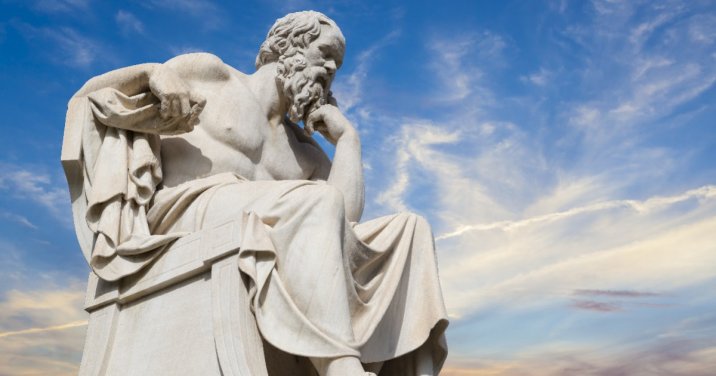Christianity is the West’s most important worldview. Plato was the West’s most important philosopher. But the two have far more in common than just importance—in fact, Plato helped set the intellectual stage for the early church.
Dean Inge, the famous professor of divinity, writes that:
“Platonism is part of the vital structure of Christian theology . … [If people would read Plotinus, who worked to reconcile Platonism with Scripture,] they would understand better the real continuity between the old culture and the new religion, and they might realize the utter impossibility of excising Platonism from Christianity without tearing Christianity to pieces. The Galilean Gospel, as it proceeded from the lips of Jesus, was doubtless unaffected by Greek philosophy . … But [early Christianity] from its very beginning was formed by a confluence of Jewish and Hellenic religious ideas.” (Emphasis added)
If you’re interested in Christianity’s origins, there are some very good reasons to be interested in Platonism:
- Plato understood the self as divided between body and soul, with the soul more closely related to goodness and truth; this made Christianity’s later soul-body division easier to understand. (Some early Christians, like Justin Martyr, even regarded the Platonists as unknowing proto-Christians, though this conclusion was later rejected.)
- Plato’s theory of forms prefigured the Christian understanding of heaven as a perfect world, of which the physical realm is a mere imitation.
- Both worldviews assume the existence of absolute truth and unchanging reality; again, Plato’s thought helped prepare people for Christianity.
- Augustine, at the end of a line of influence that began with Plato and passed through Plotinus, understood logic and reasoning—disciplines concerned with absolute truth—as important complements, not enemies, of faith. That faith-reason partnership would characterize Christianity through at least Kierkegaard. (Francis Schaeffer argues that the early existentialist brought modernity past the “line of despair” by conceiving of Christianity as accessible only through a leap of faith, beyond reasoning.)
This idea—Plato as important precursor to Christianity—is far from new. Let’s look at a few other thinkers who’ve found Plato important:
Augustine
“The utterance of Plato, the most pure and bright in all philosophy, scattering the clouds of error . . .”
“I found that whatever truth I had read [in the Platonists] was [in the writings of Paul] combined with the exaltation of thy grace.”
Eusebius of Caesarea
“[Plato is] the only Greek who has attained the porch of (Christian) truth.”
Clement of Alexandria
“. . . before the advent of the Lord, philosophy was necessary to the Greeks for righteousness. And now it becomes conducive to piety; being a kind of preparatory training to those who attain to faith . . . . For God is the cause of all good things, but of some primarily, as of the Old and New Testaments; and of others by consequence, as philosophy. Perchance, too, philosophy was given to the Greeks directly and primarily . . . . For [philosophy] was a schoolmaster to bring ‘the Hellenic mind . . . to Christ.’ Philosophy, therefore, was a preparation, paving the way for him who is perfected in Christ.” (Emphasis added)
To Dean Inge and to the early Church Fathers, readers of Plato, let’s add one more name—C. S. Lewis, who writes:
“. . . if the average student wants to find out something about Platonism, the very last thing he thinks of doing is to take a translation of Plato off the shelf and read the Symposium. He would rather read some dreary modern book ten times as long, all about ‘isms’ and influences and only once in twelve pages telling him what Plato actually said. . . . The student . . . . feels himself inadequate and thinks he will not understand him. But if he only knew [that] the great man, just because of his greatness, is much more intelligible than his modern commentator.”
So, in the spirit of Lewis, let’s not comment on Plato any further. Take Lewis’ advice and join Augustine, Eusebius of Caesarea, and Clement of Alexandria; go read the legendary thinker for yourself. The Works of Plato collection are now in their most useful format ever.
Related: What does math have to do with philosophy and culture?





